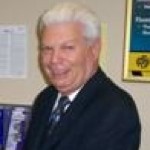What credit unions can learn from hospitals

I serve on an advisory council for a large hospital. I was asked to participate based upon the reputation our credit union has built for providing a powerfully positive experience for our members. It took very few meetings for me to understand that I had much to learn from the hospital which could be applied at the credit union. Let me share with you some of the ways Sentara Northern Virginia Medical Center goes beyond minimum standards in order to provide a continually improving experience for its patients and their families.
Sentara’s goal is to create a culture of excellence in patient care. Beyond that, they want to ensure that being in a hospital, a situation no one wants to be in, becomes as pleasant as is possibly for patients and their families. This commitment is based on doing the right things all the time. They realize this is a lofty goal. They are, nonetheless, determined to make it a reality. It starts with the interview and testing phases of the hiring process. They hire team players who are willing to put ego aside for the betterment of the team and its goals. They hire people with demonstrated leadership qualities. They hire people with a thirst for learning. They hire people who want to do the right things all the time. This means many interviews are headed to the not fit for hire file and increased hiring cost. That’s okay. What matters is that Sentara is building a team of people who fit the culture.
Sentara launches the training process with an orientation session concentrating on how to work together as a team, to not only provide great care for patients, but determined to make people comfortable with the process. Education of patients and families on what to expect, how to get help, how the hospital works with the doctors, and more are covered. Discussion is encouraged during the training. Sharing of ideas and stories are drawn from the class members. A collaborative process is developed right from the start.
Once in the department the new hires are continually trained and coached. Role playing is done on everything from how to handle a shift change introduction of the next shift personnel to how to identify someone displaying anxiety symptoms and how to engage those persons in conversation. They even train and role play on how to direct people lost in the hallways to their desired destination. No one is given a pass on the instruction and role play exercises. Administrators, housekeepers, nurses, technicians, security officers, book keepers, all employees and contractors receive the same training.
Furthermore, all employees are evaluated on their performance on a detailed set of expectations. Action plans are developed by managers for people who are not achieving excellent results. Those who fail to meet the standards on people skills are given additional training and coaching, but they are dismissed if they fail to reach the standards. Theses people and communications skills account for 50% of the total evaluation, equal to technical abilities. Numbers are never the goal …behaviors are. Sentara knows that if the behaviors are what they should be all the time, the numbers will follow.
Our Advisory Council is asked to round with various department heads. We observe people at work. We look to see if procedures are followed. Council members are asked to discuss the culture with the employees. We are asked to ask questions as if we were visitors or patients’ family members to help the hospital leadership identify possible areas of concern. Unlike so many other advisory groups on which I have served, this one truly is not window dressing. The council is an important part of the development of an amazing patient and family experience at Sentara
As a result of this system the hospital’s ratings have been on a continuous upswing. When Sentara took over the hospital it was regarded as a hospital you went to when you had no other choice. Today it is looked at as a model for what a community hospital should be. A two year old urgent care center opened by Sentara, and using this system from the beginning, is in the top five percentile nationally in patient ratings.
Hiring people who want to do the right thing all of the time. hiring people who are willing to learn and be coached. Engaging people in a spirit of collaboration. Asking others for assistance. Not being afraid to spend money on developing people and giving them a sense of purpose. These are just some of the lessons we can take from hospitals. The question is whether or not we have the commitment to put them to work for us in both good times and bad, simply because they are the right things to do, all the time!

